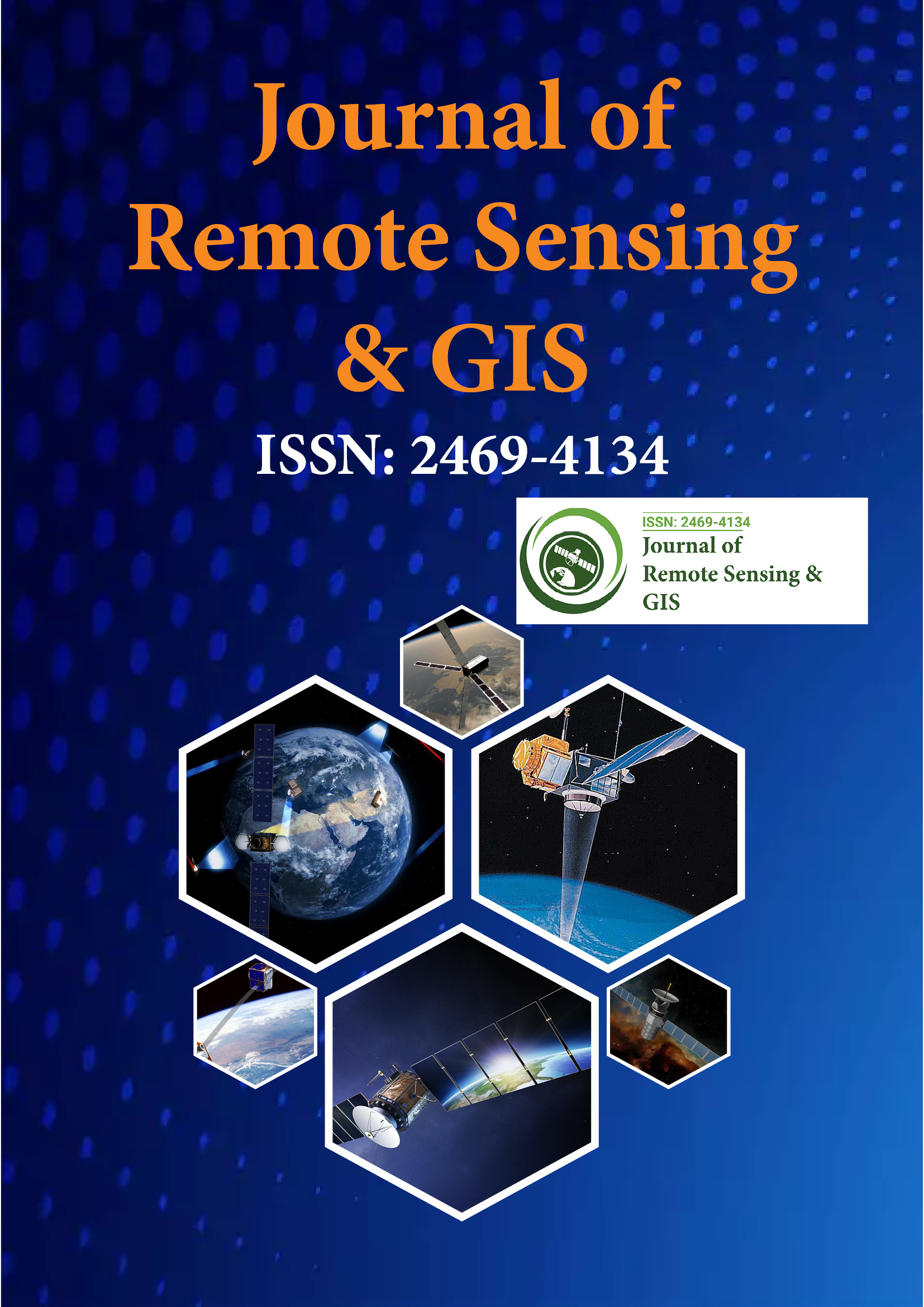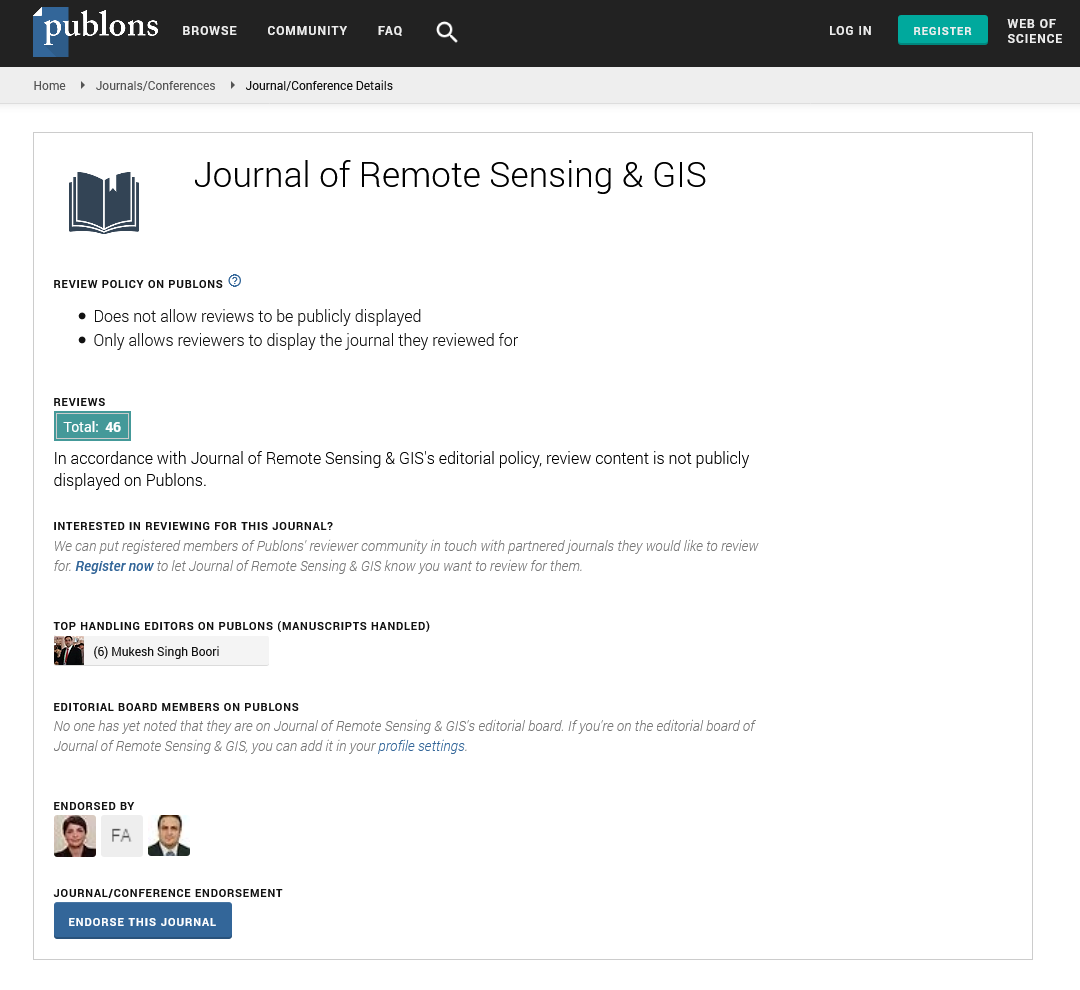Indexed In
- Open J Gate
- RefSeek
- Hamdard University
- EBSCO A-Z
- OCLC- WorldCat
- Publons
- International Scientific Indexing
- Euro Pub
- Google Scholar
Useful Links
Share This Page
Journal Flyer

Open Access Journals
- Agri and Aquaculture
- Biochemistry
- Bioinformatics & Systems Biology
- Business & Management
- Chemistry
- Clinical Sciences
- Engineering
- Food & Nutrition
- General Science
- Genetics & Molecular Biology
- Immunology & Microbiology
- Medical Sciences
- Neuroscience & Psychology
- Nursing & Health Care
- Pharmaceutical Sciences
Histomorphological spectrum of lesions of the central nervous system including the brain, spinal cord and vertebrae
3rd World Congress on GIS and Remote Sensing
September 20-21, 2017 Charlotte, USA
Pratibha Bista
Bir Hospital, Nepal
Posters & Accepted Abstracts: J Remote Sensing & GIS
Abstract:
Lesions of the central nervous system including the brain, spinal cord and vertebrae cause profound morbidity and mortality as they occur within the tight confines of the rigid cranium and vertebral column. They constitute both primary tumors and secondary tumors spread from tumors outside the central nervous system and also many infective and parasitic infections that may simulate space occupying lesions. This retrospective study analyzed the neurosurgical specimens that were sent to us by the only National Neurosurgical Referral Centre located in Bir Hospital in five years starting from January 2007 to December 2012. This study will give a broad prospective of the lesions and tumors of the central nervous system in our country during the study period. A retrospective evaluation of slides of 357 representative biopsy samples of five years duration was conducted and it constituted 2.23% of the total specimens received for histopathology. Out of these, 338 were lesions, 12 cases were of normal glial tissue and 7 cases were inadequate. In spite of suspicion of neoplasm in the brain it is not always possible to get the tumor tissue due to deep site of the lesion and poor general condition of the patient which allows only burr holing and minimal low yield of tumor mass. A slight male predominance was observed with the male to female ratio of 1.31:1. Neoplastic lesions comprised the majority of cases (82.0%) followed by non-neoplastic lesions (13.60%) and inflammatory lesions (4.43%). WHO grade-I neoplasm comprised 127 cases (45.84%) followed by grade-IV neoplasms 67 cases (24.18%), 48 cases (17.32%) of grade-II, 13 cases (4.69%) of grade-III neoplasms and 24 cases (8.66%) of all the neoplastic lesions comprised of neoplasms which were not categorized in any of the grades in the WHO classification. Out of the neoplasias, low-grade neoplasia and high-grade neoplasia comprised 42.58% and 20.60%, respectively. Low-grade neoplasms occurred in the 2nd to 4th decades of life and high-grade neoplasms occurred in the 4th to 6th decades of life. The lesions of the central nervous system including the brain, spine and vertebrae showed that neoplastic lesions comprised the majority of cases followed by non-neoplastic lesions and inflammatory lesions.

